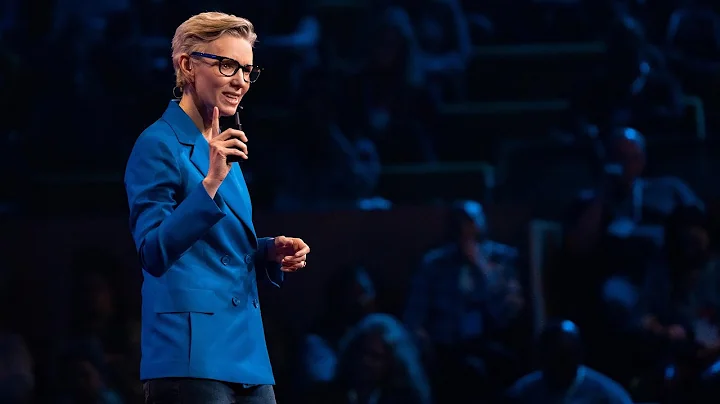He Qifang recalled Chairman Mao's speech at Luyi . He wrote:
On May 30, 1942, shortly after the Yan'an Forum on Literature and Art, Lu Xun Academy of Art invited Mao Zedong to speak to all the people.
In accordance with the practice after liberation, the Party Central Committee held an important meeting, and Chairman Mao made an important speech at the meeting. Those who participated in the meeting should return to their own units, convey the information carefully in detail, organize learning and contact the staff for discussion, and immediately improve the work.
However, the person in charge of Luyi, the heads of departments, and many teachers and cadres at the time attended the Yan'an Forum on Literature and Art. After hearing Chairman Mao's speech when they returned to the school, they did not convey it to all the staff. Instead, they invited Chairman Mao to speak in person. Come and speak.

Chairman Mao came to Lu Xun Art Institute and gave a speech to all the staff in person, which greatly educated and inspired everyone.
On the basketball court in the west courtyard of the Luyi Auditorium in Qiaoergou, outside the Roman-style multi-arch church, the shadow of the tall acacia tree is cast on the ground, and on the wall there are carvings by comrades from the art department with knives. The school motto mentioned by Chairman Mao is "Be nervous, serious, hard-working and modest."
Chairman Mao delivered an important speech for more than an hour in front of a small white wooden rectangular table. Chairman Mao used a vivid and concrete example to describe social life in the form of literature and art. The life reflected in literary and artistic works is higher, stronger, more concentrated, more typical and more ideal than ordinary real life. Therefore, Regarding this issue that is more universal,
he said: From the "Man with a Gun" that you performed not long ago, we saw Lenin. In this series, he talked to the masses, made phone calls, worked, and drove away the Mensheviks , but he has neither eaten nor slept in the series. Not eating or sleeping is not an option. Of course Lenin also had to eat and sleep in life, but not all of Lenin's activities are described in the play. This means that the Lenin in real life is much richer than the Lenin we see in the play.
Starting from
, Lenin had never been to China, let alone Yan'an . What's more, he was dead, but the attractive Lenin was still alive and could live forever. He can appear on the stage of the Yan'an Border Region Auditorium, and can also appear on all stages in the world. Therefore, we say that the life reflected in literary and artistic works is higher, more intense, more concentrated, more typical and more ideal than ordinary real life. Therefore it is more universal.
This is an excellent example of expressing deep and complex content in plain language.
In this speech, Chairman Mao also talked about important issues such as the relationship between popularization and improvement. He used the big tree and bean sprouts of Ma Maoergai as metaphors for improvement and popularization.
He said Red Army On the way across the grassland , there were very tall trees growing in Molgai. However, big trees like Molgai were grown from saplings as short as bean sprouts. Grow up. The improvement of
should be based on popularization. Don't look down on popular things. When he talked about this issue, he also used some actions to describe and satirize people who looked down on popular literature and art - turning a blind eye in front of the bean sprouts, and ended up cutting off the bean sprouts casually. Everyone laughed at this point.

The most important issue in Chairman Mao’s speech is the orientation of workers, peasants and soldiers, that is, the problem that revolutionary literary and art workers must go among the masses of workers, peasants and soldiers. He said politely to the students of Luyi: Generally, they are about to graduate and leave Luyi. The place where you study now is Xiaolu, and there is another big Luyi. It’s not enough to study at Xiaoluyi, you also have to study at Daluyi. Daluyi is the life and struggle of the workers, peasants and soldiers. The broad masses of working people are the teachers of Dalu Art. You should seriously learn from them, reform your thoughts and feelings, and gradually shift your footing to the side of the workers, peasants and soldiers, only then can you become true revolutionary literary and artistic workers. Farmers' feet have stepped on cow dung, but they are cleaner than intellectuals.
Chairman Mao continued: You go from Little Luyi to Big Luyi, that is, foreign cadres should not look down on local cadres, do not think that they are foreign buns, and look down on country bumpkins. Intellectuals should not put on airs.
When Chairman Mao said this, he used the story of Liu Zongyuan's " The Donkey of Guizhou " to vividly explain this important truth. He said there are no donkeys in Guizhou. Donkey is the name given to donkeys in rural areas of northern Shaanxi. Chairman Mao's speeches often contain language spoken by the "people".
Someone transported a donkey colt there, and it became a foreign breeder. The tiger in Guizhou is not tall and is a local bumpkin. The little tiger is very scared when he sees the huge look of a donkey and a colt. The donkey's colt brayed, and the little tiger was frightened and ran away. After running for a while, the little tiger felt that the colt was nothing special, so he approached it and touched it. The colt kicked the little tiger with his foot. The little tiger saw what he was capable of and said: It turned out that it only had this ability, but the tiger cub ate the colt.
This is also a typical example of ancient times being used today. In the past, based on this story, there was a popular idiom "Guizhou donkey skills". Chairman Mao gave it new content, a revolutionary and realistic meaning. Liu Zongyuan's original prophecy had such a meaning. The real situation of things was not commensurate with his appearance, and he could deceive people for a while, but his truth would always be exposed in the end.
Chairman Mao used it to illustrate such an important new issue. If foreigners oppose the local cadres and foreigners, the bumpkin intellectuals, and the workers, peasants, and soldiers, if they do not have a correct attitude and have no self-awareness, they will be arrogant, think they are great, and be superior to the masses. To scare the masses. At the beginning, the masses may not be able to figure out what you are capable of, and they may still respect you a little. But when they see clearly that you have no real abilities, but only have a stinky air, they will not admire you, and you will no longer be able to scare the masses.
Wang Ming, dogmatists like Wang Ming who were dumber than pigs, and the imperial envoys flying all over the sky at that time were just such ridiculous and foreign donkeys from Guizhou. When Chairman Mao told this story, he pretended to be like a tiger observing and investigating a donkey's colt, and walked towards the comrade who was taking notes at another small wooden table next to him. The comrade raised his head and smiled, and everyone laughed too. Yes, Chairman Mao himself laughed.
Chairman Mao used this story to teach us that we must use the correct attitude to treat local cadres and the workers, peasants and soldiers. That's a time we can never forget.
Chairman Mao was accompanied by the comrade in charge of Lu Yi at that time. When he was resting in a room of the music team behind the church, he saw a comrade outside the door of the room. The chairman still remembered him and asked him: "Are you still writing now?" Script?"
This comrade said: "I am doing branch work now, and I don't write scripts anymore."
Chairman Mao said: "Doing branch work is a job of getting to know people and getting to know them, and it is not inconsistent with writing scripts."
After the speech, Chairman Mao rested for a while in the cave dwelling in Houdongshan and said something very important to several people in the cave dwelling. He said: "Our Chinese nation is a great nation and should make greater contributions to the world. "
Chairman Mao's extremely inspiring words were published in roughly the same text after liberation.
After resting, he went back to Dongshan to visit some teachers' residences, and to Xishan District to visit some researchers at the art factory.











![Professional Communication Skills [BUSINESS COMMUNICATION PRO] - DayDayNews](https://i.ytimg.com/vi/WESGDi_ajUU/hq720.jpg?sqp=-oaymwEcCNAFEJQDSFXyq4qpAw4IARUAAIhCGAFwAcABBg==&rs=AOn4CLDykmQP0TYkjSgiCbbJO_qVRqhzow)










